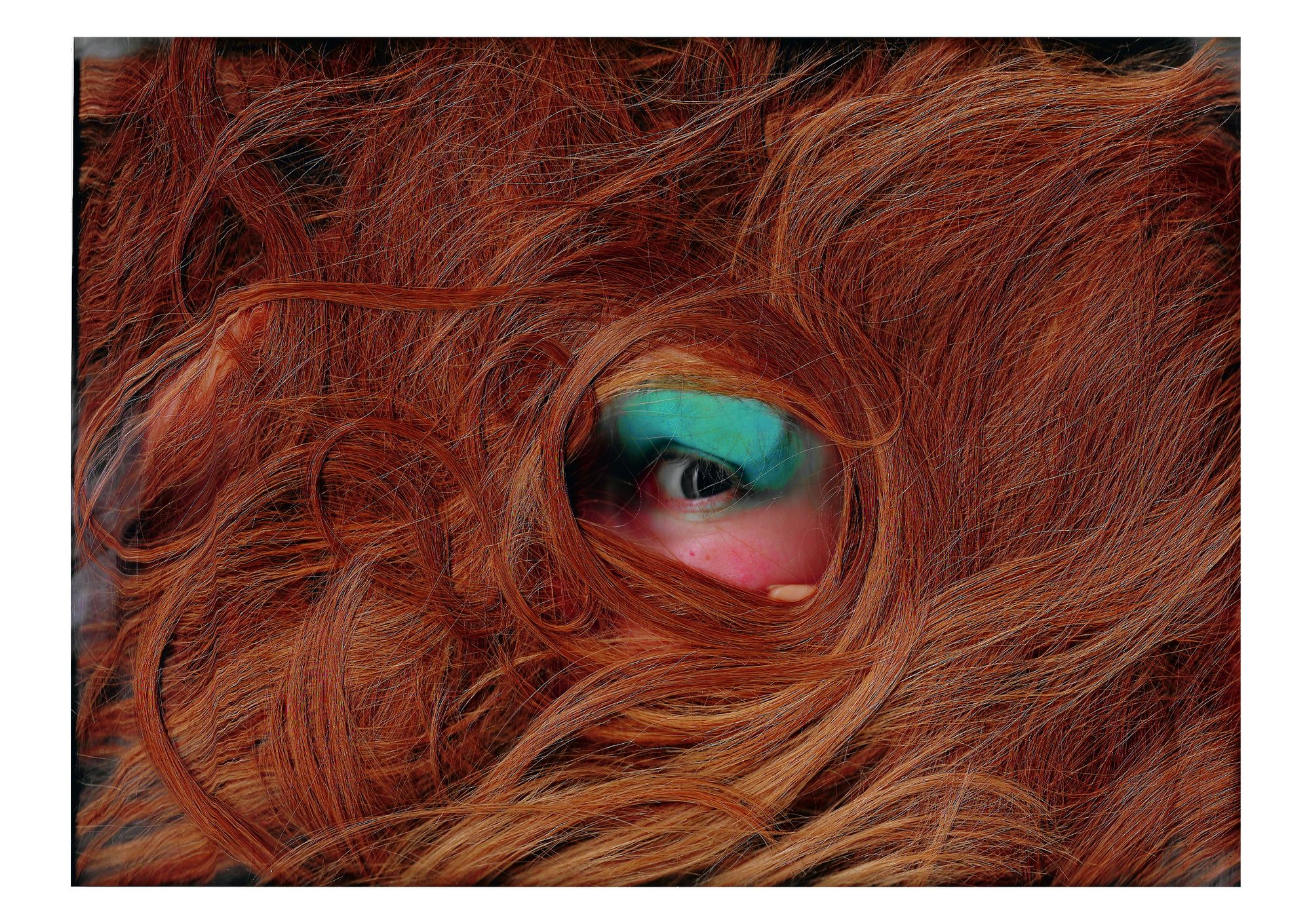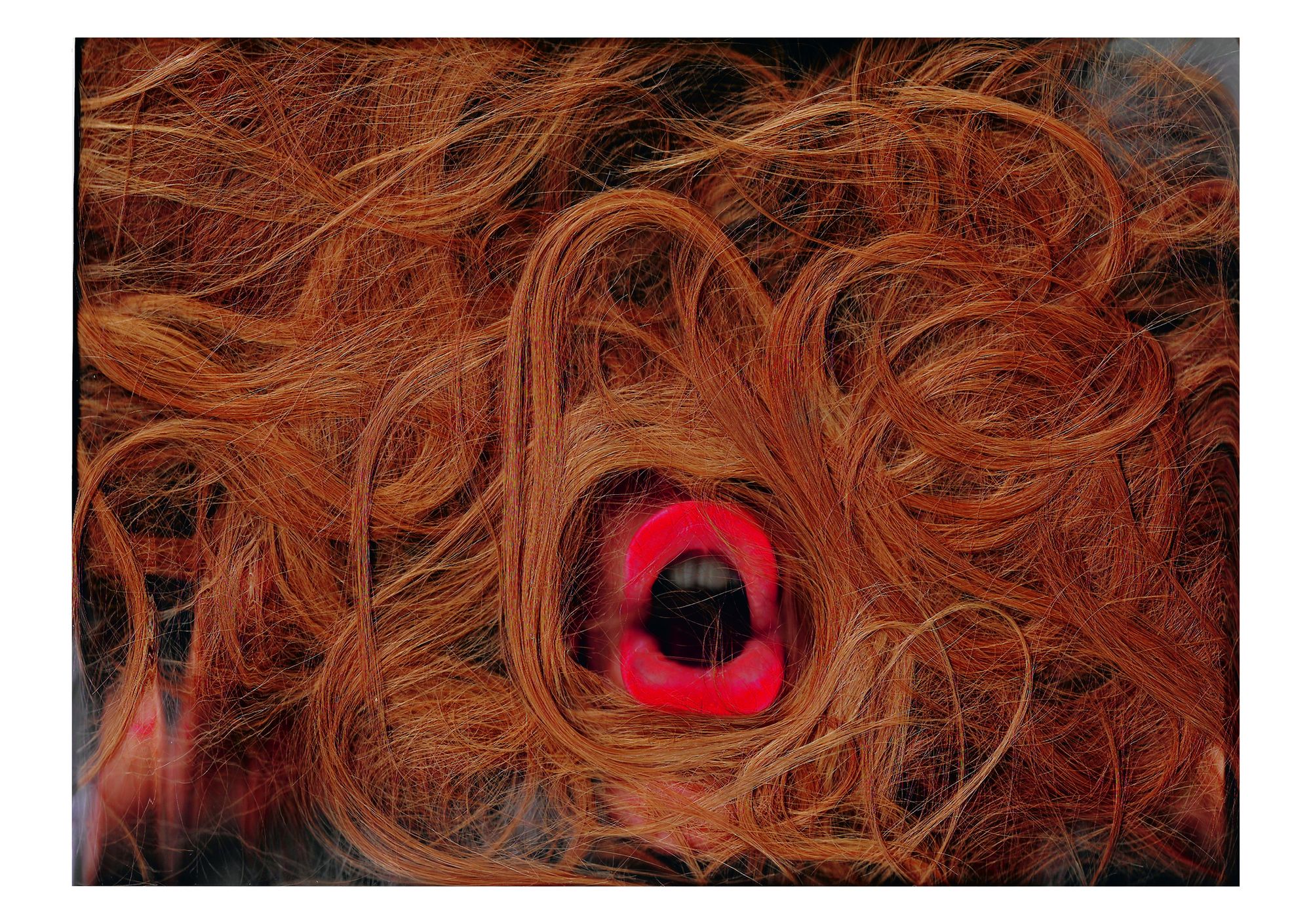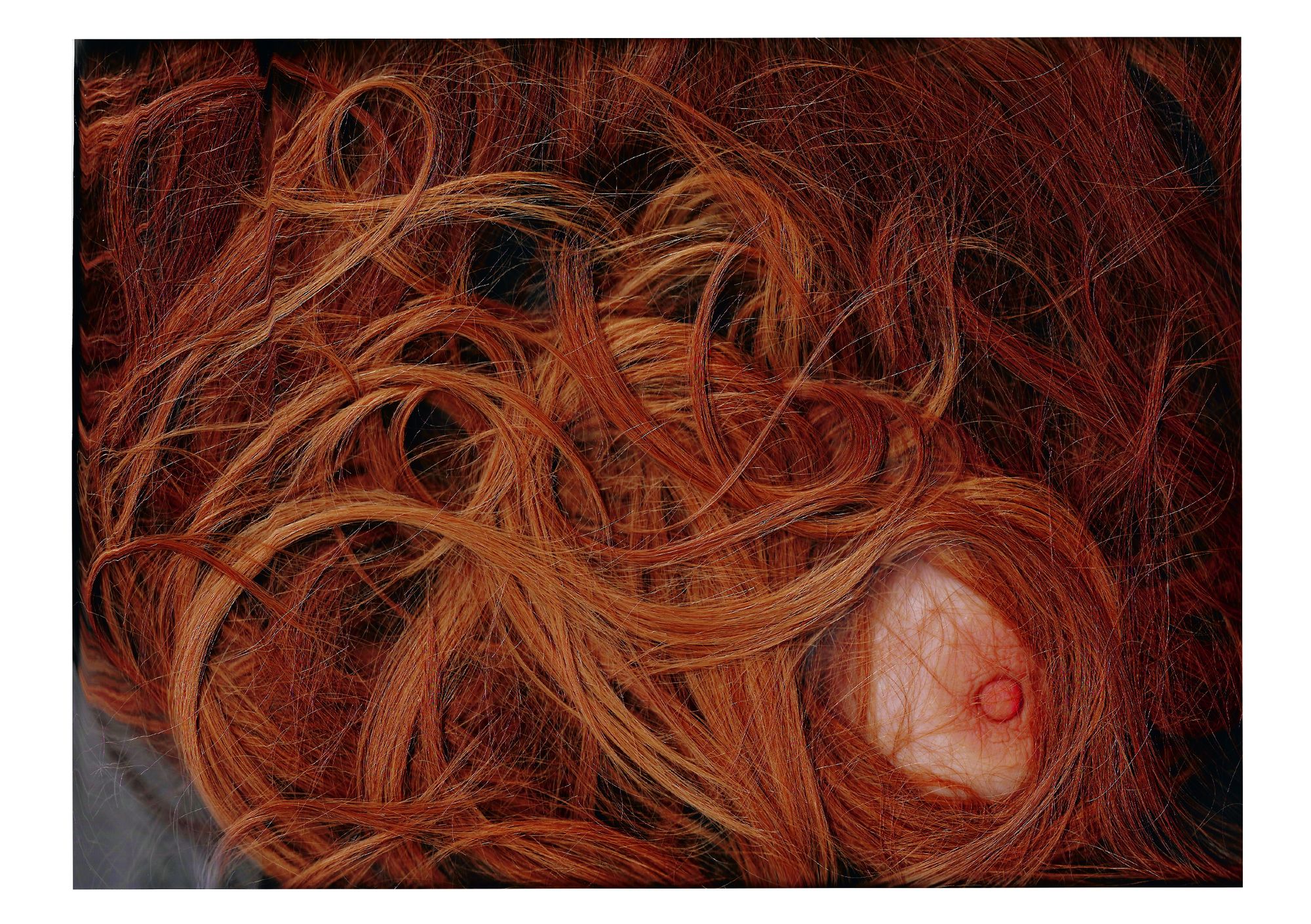Giclée print on Hahnemühle paper, ed. 4/10, each 21 x 14.8 cm, Municipal Collection Erlangen
The artist Rosie Gibbens compares herself to an alien who, during her visit to our planet, tries to adapt to the sometimes absurd routines of the earth's inhabitants - and fails extremely productively in the process. In her works, which mostly oscillate between sculpture and performance, the British artist explores questions about the performance of gender, bodily and sexual norms, and the effects of consumer society on human beings. She uses her own young and cissexual female body as material and starting point.
Gibbens is interested in techniques of (sexual) seduction and what role individual body parts play in this. The soft sculptures and props she uses often represent enlarged duplicates of organs or orifices. Equipped with these, she seeks out everyday objects and transforms them, alienating their purpose, into tools for her performances.
For untitled (eye, lips and nipple) Gibbens has scanned herself and presents the viewer one after the other with a blue made-up eye, her open red lips and a naked breast. In all three cases, the image field is filled by the artist's reddish-brown hair, which is pressed tightly against the glass and only allows a view of the respective body part through a small opening. The game of showing and hiding arouses curiosity about what might be behind the glass wall. But the fragmentation of the body, typical of Gibben's works, leaves the viewer no choice but to assemble a corresponding person in his or her imagination alone.
If the pictures seem close and intimate at first, also due to their small format, they also appear distant and unreal at the same time. The mane, dissolved down to the finest hairs, is somewhat reminiscent of cut-off girl curls in an antiquarian amulet: an illusion of physical presence that is only broken at the points where the scanner has captured a movement and given the image a very contemporary glitch.
Malte Lin-Kröger


